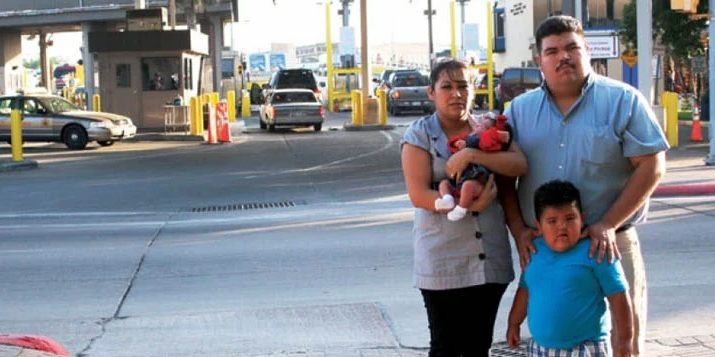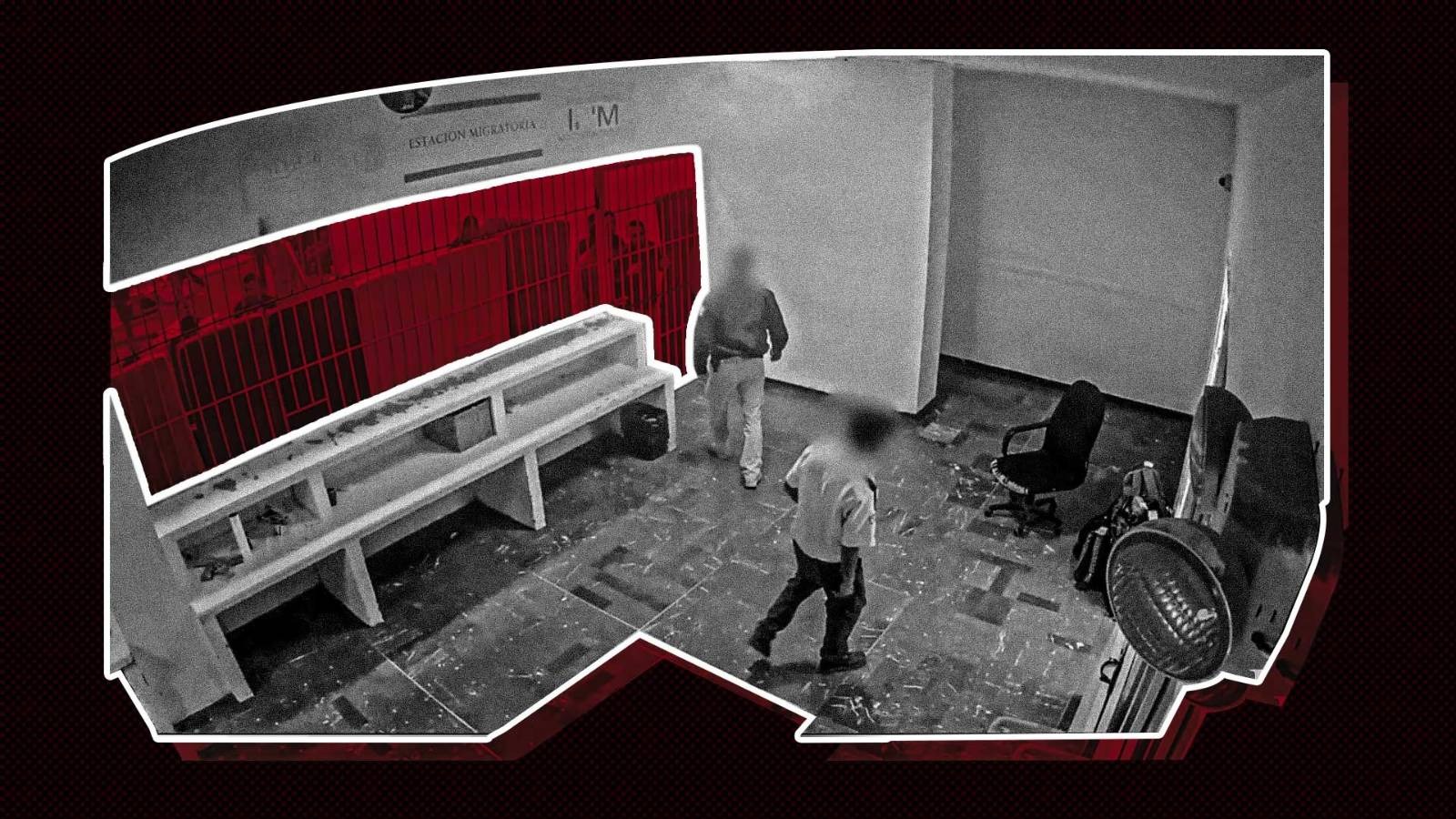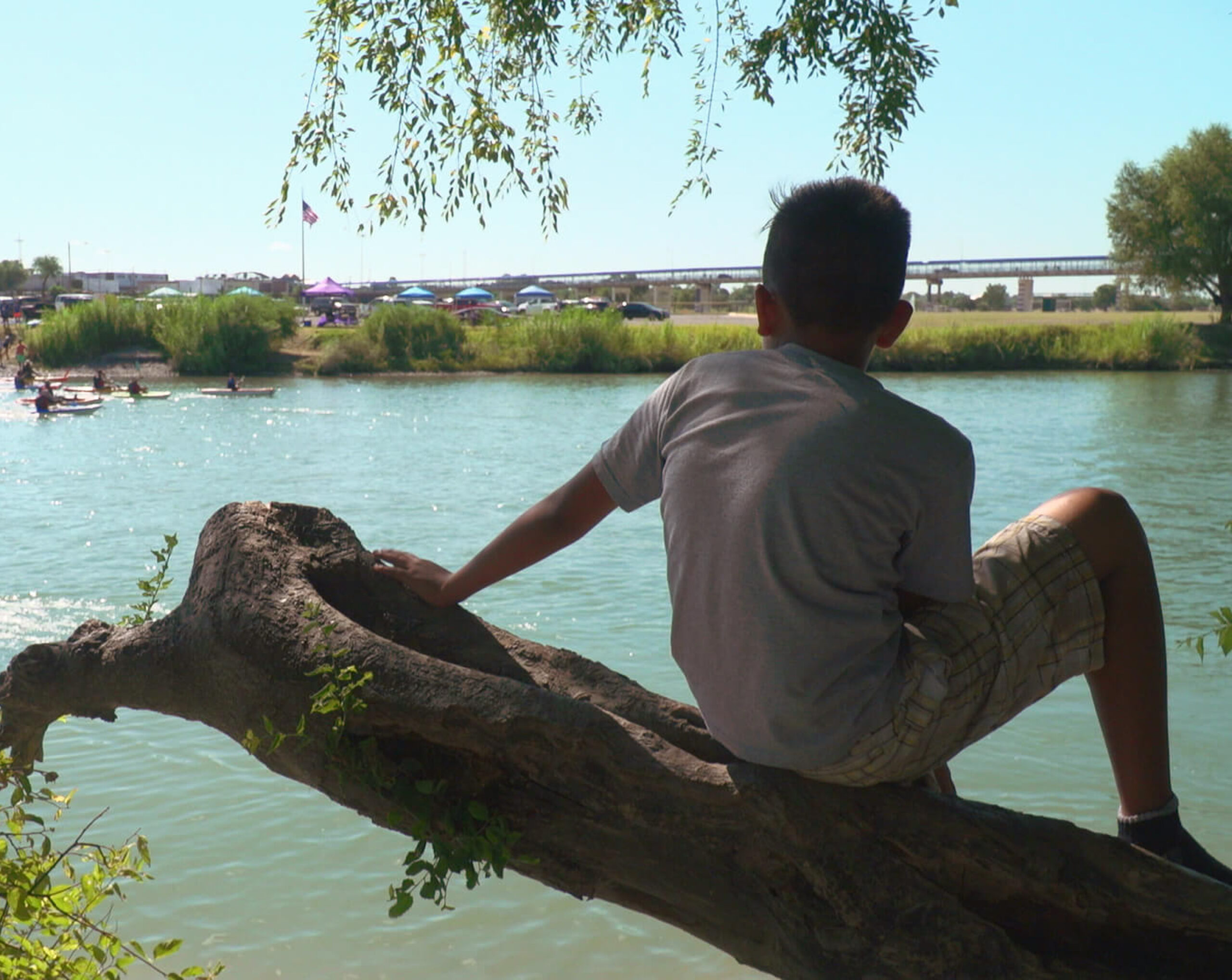
Born To Be Barred
At the border, U.S. citizens are being refused re-entry because they were delivered by midwives.
It was just another sweltering Monday morning in August. Yuliana Trinidad Castro sat in her truck with her mother, sister, and newborn daughter, windows up and air conditioner on high, waiting to cross into Brownsville from the Mexican border city of Matamoros. That weekend, like so many before, they had visited family on the southern side of the border. The trip back home, a sluggish procession across the international bridge through curving aisles of bumper-to-bumper traffic, was frustrating but familiar. The Castro sisters did it practically every week. “It was just so routine,” Yuliana’s sister, Laura Nancy Castro, recalled months later.
Then they reached the checkpoint. As always, the sisters, both American citizens, rolled down their windows and handed their entry documents to the U.S. Customs and Border Protection officer on duty, Eliseo Cabrera. Laura Nancy handed over her U.S. passport. Yuliana presented her daughter’s Texas birth certificate and her own, along with a receipt proving she had applied for a U.S. passport. Their mother, a Mexican national, presented her visitor’s visa.
The officer, Laura Nancy says, scarcely glanced at the documents—except for Yuliana’s. He examined her birth certificate and application receipt for a few moments, then ran the information on his computer. He was especially interested, the women would soon learn, in the person who registered Yuliana’s birth certificate—a once-popular midwife named Trinidad Saldivar.
Midwifery was once a cultural institution and an economic necessity for many along the border. Since the 1960s, the practice has almost disappeared as regulations for midwives, or parteras, have become more stringent—and as they were increasingly accused of falsely registering children of Mexican families as U.S. citizens. Until the early 1990s, Saldivar was one of the most sought-out parteras along both sides of the Texas-Mexico border. Following an investigation by the U.S. Immigration and Naturalization Service (as it was then called), Saldivar was one of more than a dozen Valley midwives accused of falsifying birth certificates. Some pleaded guilty—to avoid, they said, serving prison time. No one was asked which records they had been paid to forge and which were authentic, making it nearly impossible to determine which children had been delivered in the United States and which had not. Saldivar was never convicted, but her name was tarnished in the process—at least in the eyes of the U.S. government, which included her in a list of more than 230 “suspicious” midwives.
Maybe her name registered that morning with Officer Cabrera. But he appeared to be convinced from the start that the document was false, Yuliana has since stated in legal filings. He asked questions but ignored the answers, she says. He confiscated all four passengers’ documents, directed them out of traffic, and referred them for further inspection. What happened then, Yuliana’s mother says, “I would not wish on anyone.”
The three womens’ court statements tell the same story. They were taken into separate rooms and held for 11 hours. They were interrogated, mocked, harassed, and threatened with deportation or imprisonment—all, they say, to persuade them to sign confessions saying they held fraudulent documents. They were offered neither food nor water. Their requests to call for help or speak to relatives who’d come to the international bridge to look for them were denied. A cousin who wanted to see them was spirited away by officers, the sisters say.
“It was as if we had been kidnapped,” says the mother, Trinidad Muraira de Castro.
“I was so scared,” says Laura Nancy. “No one knew what was happening to us.”
Yuliana remembers hearing her baby, Camila, cry uncontrollably outside in the lobby while an officer interrogated her. She insisted she was born in Brownsville, as the certificate said. Her citizenship had never before been questioned, she told the officer, and if permitted, she could retrieve more documentation, including her mother’s blood work from a Brownsville hospital after Yuliana’s birth. In that icy little room, none of that mattered. “The officer continued harassing me, yelling at me, and telling me that I was Mexican and that he was going to deport me,” Yuliana, then 25, wrote in her statement. “After a while, I realized I had no way out since he told me no matter what I did, to him I was Mexican.”
It was all too much for her mother. Trinidad says she was grilled at length about falsified birth certificates she had indeed obtained for Laura Nancy and Yuliana when they were children—certificates saying they were Mexican citizens so they could attend school in Matamoros. Out of fear and exhaustion, she says, Trinidad signed a confession saying she had falsely registered her daughters as born in the United States.
That was that. By the time Trinidad, her daughters, and granddaughter were released, the sky was dark. Their entry documents had been taken away, and the Castro sisters were stranded in Mexico. What began as a “routine” return home to Brownsville had turned into a nightmare—one that would stretch over months, landing the Castros in a protracted legal battle and separating family members in Mexico and the United States.
They were not, they soon learned, alone. The Castros have filed suit in federal court against Customs and Border Protection. Their attorneys are seeking class-action status for the case, which could broaden its reach and have widespread implications along the border. The Castros’ experience last Aug. 24, their attorneys allege in court filings, was not an isolated incident, but a symptom of a systematic problem—a “window into the cases of dozens, if not hundreds, of similarly situated persons.” It’s also a window into the human costs associated with the U.S. government’s patchwork “crackdown” on illegal immigration.
Not long after the Castros were denied entry, a group of their U.S. relatives showed up at the Brownsville law office of Jaime Díez. An immigration attorney who has worked in the Valley for 12 years, Díez has become well known in the region for his pro bono immigration work, his strongly opinionated columns in a Mexican newspaper, and his weekly television commentaries on border and immigration issues for a Matamoros station. After he discussed the passport problem faced by U.S. residents returning from Mexico on one of his television spots, people started showing up at his studio.
Díez and other immigration attorneys in the Valley have heard of countless experiences similar to the Castros’. “Most people are totally unaware of this risk, which is why they fall into this trap,” says Lisa Brodyaga, who is working with Díez as a lead attorney on the Castro case. “We still do not know how often it is happening,” she says, because “when it happens to someone they end up in Mexico, cut off from access to counsel.”
Jessica Garcia, a Brownsville lab technician, was among those sent back to Matamoros without her legal documents. A few weeks later, after seeing Díez on TV, the 22-year-old Garcia and her mother went to the station to meet the attorney. She told him about her experience at a Brownsville international bridge on Halloween morning of last year—a morning that, she says, “changed everything, turned everything around for me.”
Two years earlier, Garcia’s husband had lost his U.S. work visa, and the family had moved back to Matamoros. Garcia kept her well-paying job at a Brownsville plasma center to support the family, which meant crossing daily through the port of entry.
Like the Castro sisters, Garcia had been delivered in Brownsville by midwife Trinidad Saldivar. Her mother, Ana Maria, remembers shopping in downtown Brownsville one day when she came across a colorful board on Saldivar’s front porch advertising her services. It was decked with a stork delivering a baby, she recalls. “Partera,” it read.
For Ana Maria, it seemed like a convenient way to have her baby in the United States and give her more opportunities. There was no need to commit fraud, she says. “If I had paid for a false document for Jessica,” she says, “I would have bought one for her older brother as well. But he is a Mexican citizen.”
On the ever-hardening line between the United States and Mexico, customs officials have long been accused of mistakenly detaining, deporting, or denying entry to U.S. citizens. Since a heightened security measure called the Western Hemisphere Travel Initiative went into effect last June, most of those targeted for interrogation at ports of entry, immigration attorneys like Díez say, have been U.S. citizens who present birth documents registered by midwives—people like Garcia and the Castro sisters, born in U.S. homes, not hospitals. (See “Locked Out”)
The new mandate requires U.S. citizens to present passports, passport cards, or other “initiative-compliant” documents when crossing from Mexico by land. Even before it was implemented, the requirement brought to light a series of complications faced by people born with the assistance of midwives. For years, the U.S. State Department had been rejecting passport applications from people whose births were attended by midwives, citing the forgery convictions. The issue came to widespread attention two years ago, when an increasing number of border residents began requesting passports to comply with the new travel-security measures.
Immigration attorneys say they began to see a stream of cases in which the U.S. State Department sent applicants in bureaucratic loops, asking them to provide all sorts of supplementary proof of citizenship—including newspaper birth announcements and high-school yearbook photos. Rejected applicants included children, senior citizens, U.S. military veterans and federal employees. The process was so arbitrary, says Díez, that some siblings in the same family would get their passports while others were denied. The Castros were a case in point: While Laura Nancy received her passport within weeks of applying, Yuliana had been asked to provide additional proof of citizenship—and was still waiting when she was denied entry last August.
In a class-action lawsuit against the State Department, the ACLU and immigration attorneys representing citizens whose applications had been rejected claimed that the department had “adopted a blanket suspicion toward one group of passport applicants.” In a settlement last year, the department agreed to initiate new procedures and training for officials taking passport applications. The settlement helped some, but many others’ requests remain in limbo, says Díez. Customs officers at ports of entry, like the ones who sent Garcia and the Castros back to Mexico, are not bound by the agreement.
“These are issues that should be handled in a courtroom, not the port of entry, where people do not have access to counsel, nor their constitutional rights,” Díez says. For many U.S. citizens still awaiting passports, border checkpoints are where their fates are decided, with customs officers serving as judge and jury.
Citing ongoing legal proceedings, U.S. Customs and Border Protection officials declined to comment about their procedures. Eddie Perez, public affairs liaison for ports of entry in Brownsville, would not say much, either. “CBP officials are not at liberty to discuss any cases under litigation,” he told the Observer. Perez said the issues can be difficult for customs officers to deal with. “We try to cover every base. We want to make sure every person we process is clear to enter,” he said. “Sometimes that process is long; sometimes it is short.”
For Yuliana and Laura Nancy Castro, the process has been long. Since their ordeal at the international bridge, a federal judge has granted the sisters permission to re-enter the United States, where they live with their husbands. But they can no longer visit their mother and extended family in Matamoros. Christmas and New Year’s were gloomy holidays, they say, spent around the dinner table in Laura Nancy’s Brownsville apartment, cut off from the celebrations of their Mexican family. Their mother is depressed, family members say, and has trouble eating. The separation has been especially tough on Laura Nancy, who was pregnant when she was denied entry and last month gave birth to a daughter. “My mother has not seen the baby,” she says, “only photos my husband has taken of her.”
Her husband and 3-year-old son, Polo, can still visit Trinidad Castro. Laura Nancy has trouble explaining to Polo why she can’t accompany them. “I tell Polo, ‘I can’t go. I am going to the doctor.’ I am always at the doctor,” she says.
Her son does not understand. Her teenage niece does. She planned to have her quinceañera this month. The coming-of-age ceremony is held on a girl’s 15th birthday. Her niece, Elvira Alexandra, had a band and dance hall booked in Matamoros, but she doesn’t want to have the party without her aunts, whom she calls her second mothers.
“Now the date is open,” says the girl’s mother, Maribel Ramirez de Castro. “It may seem like little changes, but they really affect your life.”
Jazmine Ulloa is a staff reporter for The Brownsville Herald.


